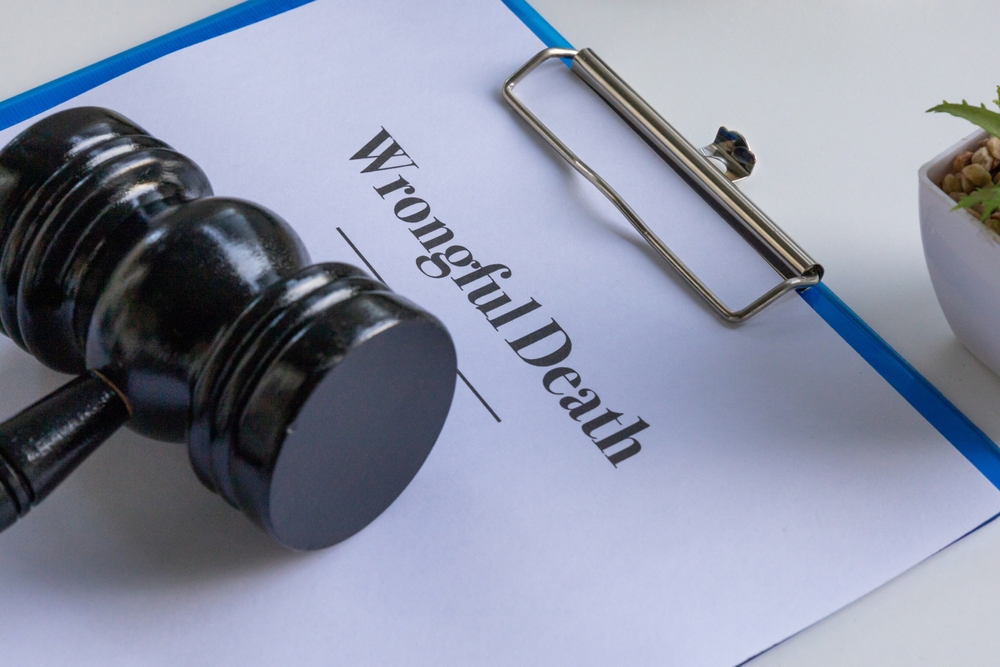If you have lost a family member in New York due to someone else’s negligence, the state’s current wrongful death law places a monetary value only on your financial losses, not your emotional devastation.
For decades, this has meant that the profound grief and loss of companionship your family endures has no recognized value in a civil claim. This approach, rooted in a law from 1847, starkly contrasts with the majority of other states.
However, the Grieving Families Act, which passed the state legislature in June 2025 and now awaits the Governor’s signature, could change this entirely. This proposed law would, for the first time, allow families to seek compensation for their emotional anguish and expand who is considered “family.” This would bring New York’s laws more in line with the rest of the country, acknowledging the deep emotional impact of losing a loved one.
The legal landscape is on the verge of a significant shift, but this also creates uncertainty. You should not have to decipher legal changes while you are grieving. If you have questions about how your family’s loss is affected by these potential changes, you deserve clear answers. A Long Island wrongful death lawyer can explain your rights, guide you through the process, and help you pursue the justice and compensation your family deserves.
Call the attorneys at Rosenberg & Gluck, LLP for a free consultation at (631) 451-7900.
Wrongful Death in New York: The Law as It Stands Today

Managing the loss of a loved one is a deeply personal and difficult journey. When that loss is caused by another’s actions, the legal system offers a path for holding the responsible party accountable.
What Is a Wrongful Death Claim?
It is a civil lawsuit filed when someone dies because of another party’s wrongful act, neglect, or default. This could stem from a variety of situations, such as a car accident, medical malpractice, or a defective product. The purpose of the claim is to compensate surviving family members for the losses they have suffered due to their loved one’s death. Who can file a wrongful death depends on state law, but in New York, the personal representative of the deceased’s estate is the one who files on behalf of the surviving family members.
The Major Limitation: New York’s Focus on “Pecuniary Loss”
New York is one of only a few states that severely restricts compensation in wrongful death cases to “pecuniary,” or purely financial, losses. This law forces families to quantify their loss in purely economic terms.
This means the law currently allows you to recover damages for tangible economic losses like:
- The loss of the deceased’s wages and financial support.
- The value of services the person provided, like childcare or household management.
- Medical expenses incurred before death and funeral costs.
What this law ignores is the human loss: the grief, the loss of love and companionship, and the emotional anguish of the survivors. A parent’s guidance, a spouse’s companionship, and a child’s love are considered to have no monetary value under the current statute.
Who Can File a Claim Under the Current Law?
A claim must be filed by the personal representative of the deceased’s estate. This individual is named in the decedent’s will or appointed by the court. Any recovery is for the benefit of the decedent’s “distributees,” which typically includes the surviving spouse and children, and sometimes parents.
The Current Deadline: A Two-Year Window
Under New York’s current Estates, Powers & Trusts Law (EPTL) § 5-4.1, you generally have only two years from the date of death to file a wrongful death lawsuit. This is a strict deadline, and failing to act within this timeframe could mean losing the right to seek justice for your family. Keep in mind that municipal claims provide a much shorter window in which to pursue a case.
The Grieving Families Act: A Potential New Chapter for Long Island Families
After years of advocacy from families and multiple legislative attempts, the Grieving Families Act is once again under consideration. Its passage would represent the most significant change to New York’s wrongful death laws since the original statute was enacted in 1847, aiming to modernize an archaic law and provide a more just avenue for families to seek accountability. Needed to prove wrongful death is showing that the death was caused by another party’s negligence or wrongful act, that surviving family members suffered losses because of it, and that a personal representative has been appointed to bring the claim.
What Would Actually Change?
The proposed changes are substantial and would fundamentally alter how wrongful death claims are valued and pursued in New York.
- Compensation for Grief: The law would permit families to seek non-economic damages for their emotional suffering. This includes compensation for grief, anguish, loss of companionship, and the loss of guidance and advice. This change acknowledges that the true weight of losing a loved one extends far beyond a bank account.
- An Expanded Definition of “Family”: The Act proposes a more modern and inclusive definition of close family members. This could allow individuals like life partners, grandparents, and other persons with a substantial relationship to the deceased to be recognized as claimants. This better reflects the diverse family structures seen across Long Island.
- A Longer Statute of Limitations: The deadline to file a claim would be extended from two years to three years. This provides grieving families with more time to process their loss before having to face the legal process.
- Retroactive Application: The proposed law would apply to all wrongful death claims filed on or after the date it is enacted, and it may apply retroactively to deaths that occurred on or after January 1, 2022.
How Would This Directly Affect Your Family’s Wrongful Death Claim?
Putting a Value on Human Loss, Not Just Financial Loss
Consider the tragic loss of a stay-at-home parent. Under the current law, proving a significant “pecuniary loss” is difficult because they may not have had a traditional income. The law struggles to assign a dollar value to the full-time care, guidance, and management they provided to the household. How much is the average wrongful death settlement depends on many factors such as the victim’s age, income, medical costs, and the circumstances of the death, but settlements often reach hundreds of thousands to several million dollars.
The Grieving Families Act would change this. A jury could finally acknowledge the immense, non-financial value that parent provided: the love, guidance, care, and nurturing. This would allow for a recovery that reflects the true scope of the family’s loss.
Recognizing Modern Family Structures on Long Island
Long Island is home to many families that don’t fit the traditional mold defined by a 19th-century law. The proposed law acknowledges this reality.
A devoted life partner who was not legally married, or a grandparent who was the primary caregiver for a grandchild, might finally have the ability to seek justice for their loss. The Act would allow courts to look beyond legal documents and recognize the substantive, loving relationships that define a family, ensuring that those who are most deeply affected have a voice. Can a lawyer help in these cases Yes a wrongful death lawyer can guide you through the legal process explain how the law applies to your family and fight to make sure your relationships and losses are recognized in court.
Why Is the Grieving Families Act Still Debated?
While the bill has strong bipartisan support and has been driven by public pressure from high-profile tragedies, it has faced consistent opposition, leading to multiple vetoes by Governor Hochul.
Opponents, including powerful insurance industry groups, hospital associations, and business councils, have raised concerns that the law could lead to significant negative consequences.
- Increased Litigation and Higher Costs: They argue that valuing emotional grief is subjective and could lead to unpredictable jury awards. This uncertainty, they claim, would result in a spike in insurance premiums for businesses, municipalities, and individuals across the state.
- Strain on Healthcare: Medical groups, particularly on Long Island, have expressed worry that a dramatic rise in medical malpractice insurance costs could make it harder to retain doctors and could threaten the financial stability of hospitals. An actuarial study commissioned by opponents suggested medical liability premiums could increase by as much as 40%.
These economic concerns have been central to the Governor’s previous vetoes. The debate pits the deep, personal losses of families against the broader economic concerns of the state’s business and healthcare sectors, creating a complex political challenge.
What This Uncertainty Means for You Right Now

While lawmakers in Albany debate the future, your family is living in the present with a profound loss. The most important thing you can do is act based on the law as it exists today.
Do Not Wait
The statute of limitations is currently two years from the date of death with some exceptions. Waiting to see if the law changes is a risk you cannot afford to take. If you miss this deadline, you could lose your family’s right to file a claim at all, regardless of what happens with the Grieving Families Act. Contacting a Long Island wrongful death lawyer promptly protects your options.
Preserve Everything
Your focus should be on your family’s well-being. Let a legal team handle the complexities of a wrongful death claim. Our team at Rosenberg & Gluck, LLP understands how to gather and preserve the evidence needed to build a strong claim, from accident reports and medical records to financial documents. We will handle the communications with insurance companies and other parties, shielding you from additional stress during this time.
Preparing for Either Outcome
We are closely monitoring the Grieving Families Act. Our approach is to prepare every wrongful death case to be as strong as possible under the current law, meticulously documenting all financial losses. At the same time, we ensure the case is ready to incorporate claims for emotional damages should the new law be signed. This dual approach protects your rights no matter what happens in Albany and positions your family for the most complete recovery possible under the applicable law. Choose a personal injury lawyer who understands both the current rules and the potential changes so your case is built for the strongest outcome.
Frequently Asked Questions About Wrongful Death Claims in 2025
If the Grieving Families Act passes, can I file a claim for a death that happened last year?
Potentially, yes. As mentioned, the 2025 version of the bill includes a retroactive clause that could apply to deaths that occurred on or after January 1, 2022. If your loved one’s death falls within this period, the passage of the Act could fundamentally change your ability to seek compensation for your emotional grief. It is important to discuss your options with an attorney immediately to understand how this might apply to your situation.
What is the difference between a wrongful death claim and a survival action?
A wrongful death claim compensates the surviving family members for their losses (both economic and, potentially, emotional). A survival action is different; it is brought by the estate to recover damages the deceased person could have claimed had they survived. This typically includes compensation for the conscious pain and suffering the decedent endured between the time of the injury and their death.
How might the Grieving Families Act impact a medical malpractice case on Long Island?
This is a central point of the debate surrounding the Act. If it passes, families could sue for the emotional grief caused by a fatal medical error, in addition to economic losses. This would significantly increase the potential damages in a medical malpractice lawsuit. Opponents, including hospital associations, worry this will drive up malpractice insurance rates for doctors and hospitals on Long Island, potentially affecting the availability of care.
My partner and I lived together for 20 years but were never married. Can I file a claim if the Grieving Families Act becomes law?
The Act’s expanded definition of “family members” is intended to cover situations exactly like this. The law would look at the substance of the relationship—the emotional and financial interdependence, the length and nature of the partnership—not just a marriage certificate, to determine who has the right to seek justice. This is a significant step toward recognizing the reality of modern families.
Let Us Clarify Your Path Forward
While the laws in New York may be changing, our commitment to the families we serve remains constant. The team at Rosenberg & Gluck, LLP is prepared to handle the legal complexities so you can focus on healing.
For a free, confidential conversation about your family’s situation and to have your questions answered in plain language, call us today at (631) 451-7900.







